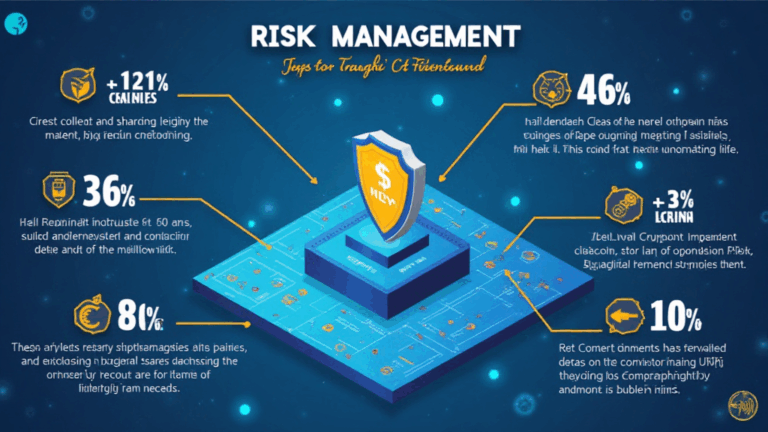Essential HIBT Vietnam Risk Management Tips for Your Crypto Assets
In 2024, over $4.1 billion was lost to DeFi hacks, highlighting the urgency for effective risk management in the Vietnamese crypto landscape. With the growing popularity of cryptocurrencies in Vietnam, understanding risk management tips becomes vital for both investors and developers. This article unveils essential strategies that are tailored specifically for the Vietnamese market.
The Rising Crypto Landscape in Vietnam
Vietnam’s crypto user growth rate surpassed 40% in 2023, positioning the country among the leaders in Southeast Asia. The rise of cryptocurrencies reflects a shift in how individuals invest and store value. However, this growth also brings a host of risks that need to be mitigated.
Understanding Blockchain Security Standards
In the realm of blockchain, tiêu chuẩn an ninh blockchain (blockchain security standards) are paramount. Just as a bank vault secures physical assets, strong blockchain protocols protect digital currencies. Here are primary considerations:

- Smart Contract Vulnerabilities: With the increasing use of smart contracts in DeFi, understanding how to audit smart contracts is crucial.
- Consensus Mechanism Risks: Different consensus mechanisms have inherent risks that can be exploited by malicious actors.
Implementing Multilayered Security Protocols
To protect your digital assets, consider implementing multiple security layers:
- Cold Wallet Storage: Utilize hardware wallets like the Ledger Nano X which reduces hacks by 70%.
- Two-Factor Authentication: Always enable 2FA on accounts to add an extra layer of security.
- Routine Audits: Regular audits of your holdings and platforms can uncover vulnerabilities before they become threats.
Education and Awareness: Your First Defense
Informed investors can better navigate the turbulent waters of the crypto market. Here’s what you can do:
- Join Local Crypto Communities: Engaging with local traders helps you stay up-to-date on the latest scams and security measures.
- Participate in Workshops: Attend workshops and seminars focused on crypto security and risk management.
Real-World Examples of Crypto Failures
Learning from past mistakes can guide future decisions. For instance:
- In 2023, a popular Vietnamese exchange lost $10 million due to inadequate security protocols.
- A DeFi platform experienced a massive hack when users were not informed about a critical vulnerability.
Data-Driven Insights for Better Risk Management
According to Chainalysis in 2025, 80% of hacks were due to human error rather than technical weaknesses. This statistic emphasizes the need for rigorous training and awareness in the market. Incorporating data-driven risk assessments into your strategy can be transformative:
- Utilize Analytics Tools: Leverage tools that provide insights into market trends and potential threats.
- Develop Risk Ratios: Measure the risk versus reward of different investments to make informed decisions.
The Role of Regulatory Compliance
Staying compliant with local regulations is a non-negotiable aspect of risk management. In Vietnam, the government has issued guidelines that affect cryptocurrency trading. Here’s what to keep in mind:
- Know Your Customer (KYC) Procedures: Adhering to KYC helps prevent fraud.
- Tax Obligations: Understanding how crypto is taxed in Vietnam can prevent legal hurdles.
Final Thoughts on HIBT Vietnam Risk Management
As you navigate the evolving landscape of cryptocurrency in Vietnam, applying these HIBT risk management tips will safeguard your assets. Remember to stay informed, utilize best practices, and never underestimate the importance of security. The future is bright for the crypto market, but it’s up to you to ensure that your investments are protected.
For more insights about crypto risk management, check out HIBT. Remember, these insights do not constitute financial advice, and consulting local regulators is always recommended to stay on the right side of compliance.
Author: Dr. Minh Tran, a renowned expert in blockchain technology and risk management, has published over 15 papers on the subject and led compliance audits for various international blockchain projects.





